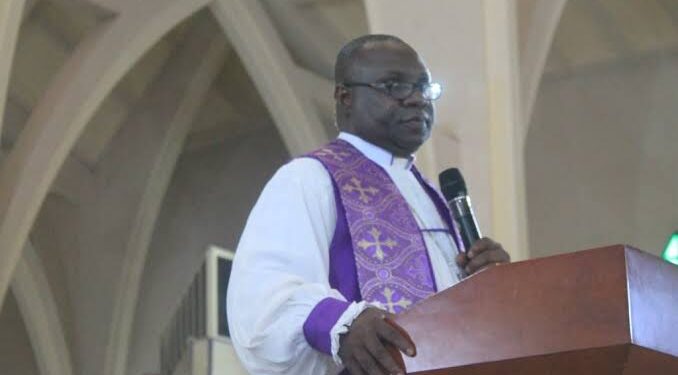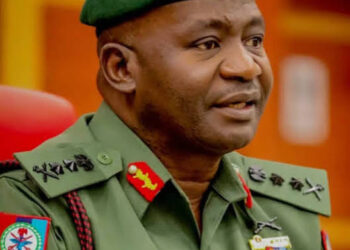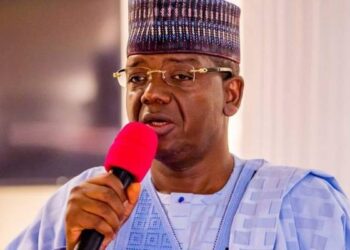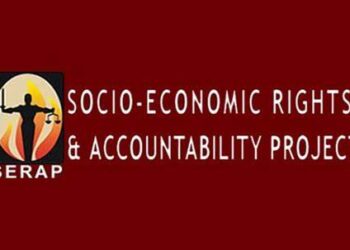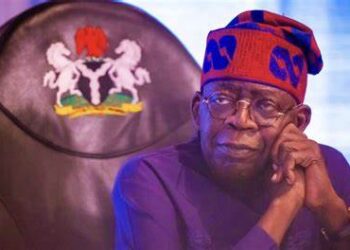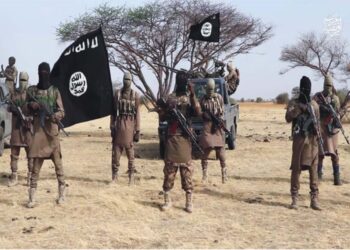The leadership of the Christian Association of Nigeria has declared its support for intensifying international attention on attacks against Christian communities, expressing hope that external pressure will finally push the Federal Government to take decisive protective measures.
Archbishop Daniel Okoh, who heads the umbrella Christian body, made the statement on Tuesday in Jos, Plateau State, during the opening ceremony of CAN’s Fourth Quarterly National Executive Council meeting attended by Christian leaders from across the country.
Speaking to the gathering, Okoh noted that the international community has become increasingly alarmed by what he described as the scale, consistency, and brutality of assaults on Christian populations, particularly in northern Nigeria and the Middle Belt region.
The CAN President left no ambiguity about his organization’s position on the nature of the violence. “CAN has spoken clearly and courageously on this matter, and we stand unwaveringly by our position that there is Christian genocide in Nigeria,” Okoh stated emphatically.
He drew on recent firsthand experience to support his claims, referencing a visit he and other CAN officials made to Bokkos in Plateau State, where they encountered families displaced by recent attacks. According to Okoh, the devastation witnessed during that visit helps explain why global concern has reached its current intensity.
The Archbishop painted a grim picture of the situation in affected areas, describing entire communities forcibly uprooted, homes completely destroyed, and thousands of lives permanently disrupted by violence.
“We declare with one united voice: You are not forgotten. You are not abandoned. The Body of Christ stands firmly with you,” Okoh assured the displaced communities, signaling that the Church would not allow their suffering to fade from public consciousness.
The Christian leader expressed deep frustration over what he characterized as years of unpunished killings, kidnappings, and village burnings that have created an atmosphere of impunity—a pattern that has now captured the attention of foreign governments and international organizations.
While acknowledging the painful reality that Nigeria has become an international focal point for such disturbing reasons, Okoh made clear that CAN views external intervention as potentially beneficial if it produces concrete results in terms of citizen protection.
“Although we are pained that Nigeria is being spotlighted for such grievous reasons, if international attention is what is required to spur decisive governmental action to protect lives and bring lasting peace, then we, the Christian community in Nigeria, welcome it,” the CAN President declared.
His statement comes amid escalating diplomatic tensions between Nigeria and the United States following President Donald Trump’s designation of Nigeria as a “Country of Particular Concern” over alleged Christian persecution and his subsequent threats of military intervention if the violence continues.
The Nigerian government has rejected Trump’s characterization, insisting that the country’s security challenges affect citizens of all religious backgrounds and stem from terrorism, banditry, and criminality rather than systematic religious persecution.
However, Okoh’s remarks indicate that Christian leadership in Nigeria holds a fundamentally different view, believing that their communities face targeted violence that warrants being described as genocide—a term with specific legal meaning under international law.
The Archbishop announced that CAN would escalate both domestic and international advocacy efforts until Christian communities across Nigeria receive what the organization considers adequate protection from attacks.
“We will continue to demand justice. We will continue to call for accountability. We will continue to defend the vulnerable. We will continue to advocate for peace and unity in Nigeria,” Okoh vowed, outlining a sustained campaign strategy.
He specifically highlighted the urgent need for government action on resettling internally displaced persons, warning that allowing citizens to languish indefinitely in displacement camps creates long-term dangers for national stability and cohesion.
The CAN President emphasized a foundational principle that should guide government response: “No individual should ever be persecuted or killed on account of their faith,” he stated, framing the issue as one of fundamental human rights rather than mere security management.
Okoh also used the platform to rally Christian leaders toward greater unity and resilience, noting that the international community is closely observing how Nigeria handles the ongoing crisis.
He urged the Church to maintain a unified voice in addressing the challenges, suggesting that global attention should serve as confirmation that the suffering of persecuted Christian communities will no longer be dismissed or ignored by the wider world.
The CAN leader’s strong endorsement of international scrutiny places the Christian body at odds with the Nigerian government’s position that external intervention, particularly military threats, represents unacceptable interference in the country’s internal affairs.
His statements also potentially complicate efforts by the Federal Government to manage its relationship with the United States and other Western nations, as the most prominent Christian organization in Africa’s most populous nation is essentially validating the concerns being raised by foreign governments.
The Fourth Quarterly National Executive Council meeting in Jos provides CAN with a platform to coordinate strategy among its member denominations as the organization navigates the complex intersection of faith, security, politics, and international relations.
With the 2027 elections approaching and the Tinubu administration facing multiple challenges, CAN’s willingness to embrace international pressure as a tool for domestic policy change signals that religious dynamics will remain a contentious factor in Nigeria’s political landscape.

